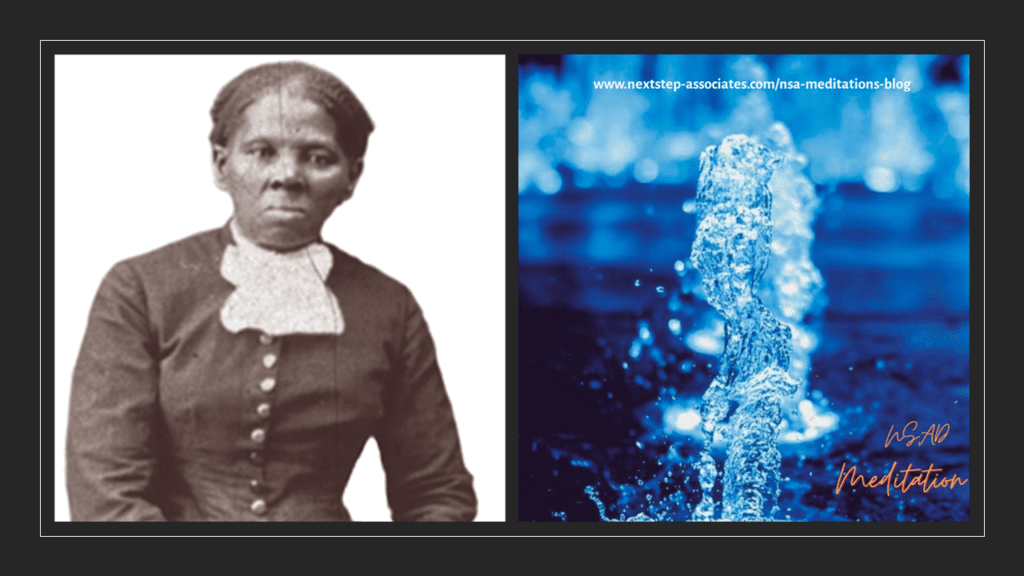Two hundred years ago, a woman who came to be known as “Moses” to African Americans devoted her life to bringing freedom to her people. Who was this woman and how did she labor to set her people free?
Harriet Tubman lived in slavery for twenty-eight years. Then came rumors that she, like her older sisters, would be sold to slaveowners in the deep South. Alone and on foot, she made the 133-mile escape from Dorchester County, Maryland (Eastern Shore), assisted by the Underground Railroad, to this city, Philadelphia, Pennsylvania, and to freedom!
Harriet Tubman found work cleaning and cooking in Philadelphia to save money, to return to the South to get family and anyone else who wanted to ride on “the ship of Zion” heading North. When the Fugitive Slave Act became the law in the United States, Harriet Tubman was undaunted. The journey to freedom became longer and the escapees following Tubman, who had become a conductor on the Underground Railroad, journeyed to freedom to safety in slave-free Canada. It is estimated that Harriet Tubman made nineteen trips to the South and freed approximately 300 slaves. The South sought furiously to apprehend her and put up a reward of $40,000 for her capture (in 2022 currency, this amounts to more than $1,300,000.00). Harriet Tubman was never captured.
When the Civil War began, Tubman volunteered to serve with a troop of white soldiers in the Union Army; she worked as a cook and nurse and assisted many escapees from slavery. The Emancipation Proclamation was signed in 1862. Harriet Tubman officially enlisted in the Union Army and worked as a spy in South Carolina. Tubman was the first woman in the United States to lead a military operation—the Combahee River Raid—in which she led 150 Black soldiers in freeing more than 700 slaves from slaveholders who were not abiding by the Emancipation Proclamation.
After the Civil War, Harriet Tubman continued to provide shelter and food for African Americans trying to find their place as free persons in the United States. She was most attentive to elderly African Americans, and many lived in her home. Tubman eventually purchased land on which were buildings that became a home for the aged. Harriet Tubman also campaigned for the right of women to vote.
Harriet Tubman was MOSES to her people. She was a slave, an escaped slave, an underground railroad conductor, a spy for the Union Army, a victorious Union military leader, a campaigner for women’s right to vote, and an advocate for the elderly. She was MOSES to her people.
Reflections
In the Bible, Exodus 3:7-10, God calls Moses to lead oppressed Israel out of bondage in Egypt. He is to tell Pharaoh to set God’s people free. Slavery in the United States oppressed the African Americans, and a five-foot Black woman believed the call on her life was to help her people to be free. Her name was Harriet Tubman, but her people called her “MOSES.”
Go down, Moses, way down in Egypt land
Tell old Pharaoh to let my people go
When Israel was in Egypt land
Let my people go
Oppressed so hard they could not stand
Let my people go
Go down, Moses, way down in Egypt land
Tell old Pharaoh to let my people go
Exodus 3:7-10
Dorothy Watson Tatem, D.Min., ACC
Senior Associate
Next Step Associates, LLC
Cassandra W. Jones, Ed.D.
CEO & President


